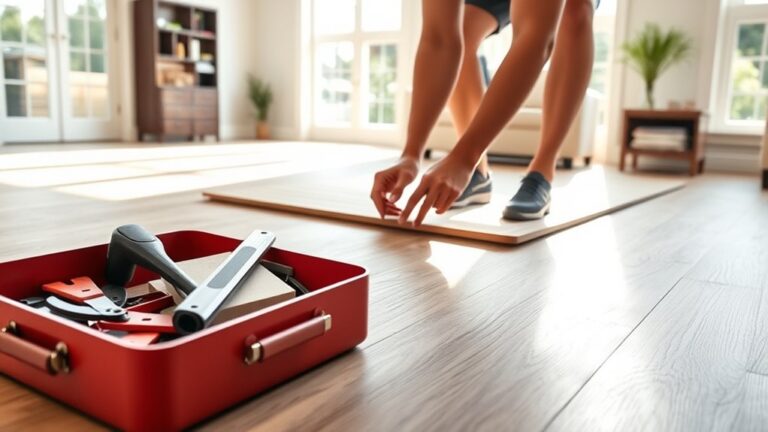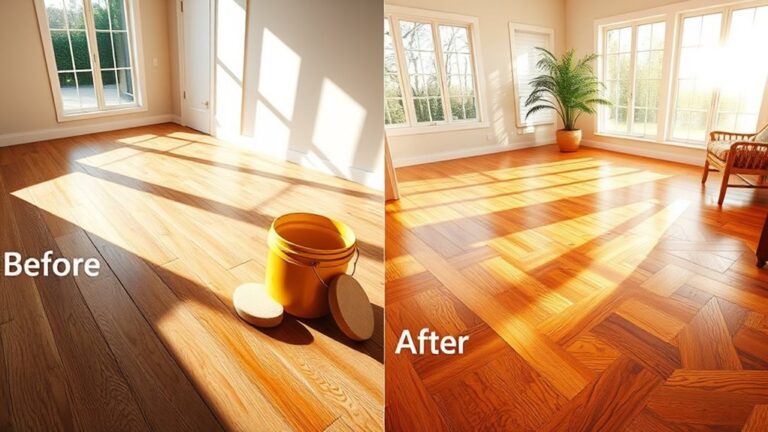A floor inspection can cost anywhere from $150 to $500 on average. Getting your floor inspected is an essential step in determining its condition, identifying any potential issues, and planning for repairs or replacements.
Whether you’re a homeowner or a business owner, understanding the cost of a floor inspection is crucial for budgeting purposes. While it’s difficult to provide an exact figure as the cost can vary based on factors like the type of flooring, size of the area, and location, the average cost typically falls between $150 and $500.
Hiring a professional flooring inspector can help you assess the integrity of your floor and make informed decisions about maintenance and improvements.
Understanding Floor Inspections
Floor inspections are a crucial part of maintaining the longevity and safety of your flooring. Regular inspections can help identify any underlying issues, assess wear and tear, and prevent potential hazards. The cost of a floor inspection can vary depending on several factors such as the type of flooring, the size of the area being inspected, and the complexity of the problem. It is important to understand that a floor inspection cost is an investment in the overall health and maintenance of your flooring.
One of the key reasons floor inspections are important is that they can help you avoid costly repairs or replacements in the future. By catching any issues early on, you can address them before they escalate into major problems. Some common reasons for floor inspections include water damage, structural issues, improper installation, or general wear and tear. Routine inspections can also help you identify any potential safety hazards, ensuring that your flooring meets the necessary standards and regulations.
Regular floor inspections offer several benefits. They can help prolong the lifespan of your flooring, saving you money in the long run. Inspections also provide peace of mind, knowing that your flooring is in good condition. Additionally, they can help maintain the aesthetic appeal of your space by identifying any maintenance or cleaning needs. Overall, investing in regular floor inspections can contribute to a safer, more durable, and visually pleasing environment.

Factors Influencing The Cost Of Floor Inspections
The cost of a floor inspection can vary depending on several factors. The type of flooring material is one of the key factors that can influence the cost. Different materials require different inspection methods and expertise, which can impact the overall cost. The size of the floor area is another important consideration. Inspecting a larger floor area may require more time and resources, which can increase the cost. The complexity of the flooring problem is also a factor to consider. If the issue is simple and straightforward, the cost may be lower. However, if there are multiple problems or if the issue is more complicated, the cost may be higher. Ultimately, the cost of a floor inspection will depend on these factors and the specific circumstances of each situation.
Average Cost Of Floor Inspections
The average cost of floor inspections can vary depending on several factors. On a national level, the average cost for floor inspections typically ranges between $150 and $500. However, it’s important to note that this price range can be influenced by various factors, including the size of the floor area to be inspected, the type of flooring being examined, and the location of the property. For larger floor areas or more complex flooring materials, the cost of the inspection may be towards the higher end of the spectrum. Additionally, travel fees and additional tests might also incur extra costs. Before hiring a floor inspector, it is advisable to get quotes from multiple professionals to ensure you receive a fair price for the inspection services needed.
Cost-saving Tips For Floor Inspections
Discover effective cost-saving tips for floor inspections and gain insight into how much a floor inspection can cost. Stay informed and make informed decisions for your flooring needs.
Are you wondering how much a floor inspection will cost? Before hiring a professional, it’s important to research and compare prices in order to find the most cost-effective option. Here are a few cost-saving tips to keep in mind during the process.
Researching and Comparing Prices
Before committing to a floor inspection service, take the time to research and compare prices from different providers. Look for companies that offer transparent pricing and clear breakdowns of their fees. It’s also beneficial to read customer reviews and testimonials to ensure the quality of service matches the price. While it may be tempting to choose the cheapest option, keep in mind that quality is key when it comes to floor inspections.
DIY Floor Inspections: Pros and Cons
Consider whether a DIY floor inspection is suitable for your needs. While it can save you money, it’s essential to have the necessary knowledge and experience to identify potential issues accurately. If you’re confident in your abilities, a DIY inspection can be a cost-effective solution. However, if you have little to no experience in floor inspections, it’s best to hire a professional.
Regular Maintenance to Prevent Floor Issues
One of the most effective ways to save on floor inspections in the long run is by practicing regular maintenance. By taking care of your floors and addressing any issues promptly, you can prevent costly damages that may require professional inspections. Simple tasks like regular cleaning, avoiding excessive moisture, and promptly fixing minor damages can help extend the lifespan of your floors and reduce the frequency of inspections.
Hiring The Right Professional Inspector
Qualifications and Certifications to Look for: When hiring a professional floor inspector, it is crucial to consider their qualifications and certifications. Look for inspectors who have undergone specialized training in floor inspections and are certified by recognized industry organizations. This ensures that they have the necessary knowledge and expertise to accurately assess and identify any issues with your flooring.
Questions to Ask Potential Inspectors: Before making a final decision, it is important to ask potential inspectors a few key questions. Inquire about their experience in the field, the methods they use for inspections, and whether they have any specific expertise in the type of flooring you have. Additionally, ask for references and examples of their previous work to get an idea of their track record and the quality of their inspections.
Checking for Insurance and Licenses: Before hiring a floor inspector, ensure that they have proper insurance coverage and the necessary licenses to operate in your area. This is important for both their protection as well as yours. Having insurance coverage protects you from any liability in case of accidents or damages during the inspection process. Valid licenses also indicate that the inspector has met the requirements set by regulatory bodies in your region.
Negotiating For Affordable Floor Inspections
When it comes to negotiating for affordable floor inspections, it is essential to request multiple quotes from different inspection companies. By doing so, you can compare the prices and services offered by each company. Take the time to review the scope of work included in each quote and ensure that it aligns with your needs. This will help you understand and discuss the scope of work, ensuring that all necessary inspections are included. Additionally, requesting multiple quotes provides you with the opportunity to ask for discounts or special offers. Some companies may be willing to provide a discount, especially if you are a repeat customer or if there are specific circumstances that warrant it. Make sure to inquire about any special offers or promotions they may have at the time of your request. By considering these factors and negotiating, you can find an affordable floor inspection that meets your requirements.
Avoiding Common Pitfalls And Scams
When it comes to floor inspections, it’s important to understand the cost involved. However, beware of contractors offering unrealistically low prices. While it may be tempting to save money, these offers often come with hidden charges or subpar inspections. Avoid contractors offering free inspections as they may use it as a tactic to pressure you into hiring their services. Instead, look for reputable professionals who charge a reasonable fee for their expertise.
Understanding red flags and warning signs is essential in avoiding scams. Be cautious of contractors who pressure you into unnecessary repairs or offer extremely low prices as bait-and-switch tactics. Look for certifications and accreditations, as they indicate the contractor’s professionalism and knowledge. Additionally, do your research and read reviews to ensure you are hiring a trustworthy floor inspector.
Diy Floor Inspection Techniques
Performing a DIY floor inspection can save you money and help you identify potential problems early on. However, it is important to have the right tools and equipment before you begin. Here are some essentials you will need for a successful floor inspection:
| Tools | Equipment |
|
|
- Clear the area and remove any furniture or rugs.
- Inspect the floor visually for any noticeable issues such as cracks, bulges, or discoloration.
- Use a flashlight to inspect the floor for hidden damages, such as water stains or termite infestation.
- Check the floor’s level using a level and mark any uneven areas with chalk or masking tape.
- Test the floor’s moisture content using a moisture meter to identify potential moisture-related problems.
- Use an infrared camera or borescope to detect hidden moisture or structural issues.
- Check for unusual temperature fluctuations using a heat gun.
- Monitor the humidity levels in the room using a hygrometer.
- Take photos of any areas of concern to document the inspection process.
While DIY floor inspections can be helpful, there are certain situations where contacting a professional floor inspector is necessary. If you encounter complex issues, extensive damages, or if you are unsure about the extent of the problem, it is best to seek professional assistance. They have the expertise and specialized equipment to provide a thorough assessment and recommend appropriate solutions.
Maintenance Tips For Floor Longevity
Proper cleaning and care practices play a vital role in extending the life of your floor. By following a few maintenance tips, you can keep your floor looking its best for years to come.
Proper Cleaning And Care Practices
One of the most crucial aspects of floor maintenance is proper cleaning. Regularly sweeping or vacuuming your floor helps remove loose dirt and debris that may cause scratches or damage over time. Using a soft-bristle broom or a vacuum with a floor attachment is recommended to prevent any potential harm to your floor’s surface.
Additionally, mopping the floor with a gentle, pH-neutral cleaner specifically designed for your floor type is essential. Avoid using abrasive cleaners or harsh chemicals as they can dull the finish or cause discoloration.
Stain And Damage Prevention
To prevent stains and damage, be cautious when placing heavy furniture on your floor. Utilize furniture pads or felt protectors on the feet of your furniture to create a barrier between the floor and the weight of the furniture. This will help prevent scuffs, scratches, and indentations.
Furthermore, promptly cleaning up spills is crucial to avoid permanent stains or damage to your floor. Wipe away any spills immediately to prevent them from seeping into the floor’s surface.
Regular Floor Maintenance Schedule
Establishing a regular floor maintenance schedule is vital for preserving the longevity of your floor. Depending on the type of flooring you have, schedule routine maintenance tasks such as polishing, waxing, or refinishing to keep your floor in top condition. Refer to the manufacturer’s guidelines for the appropriate frequency of these tasks.
Frequently Asked Questions For How Much Does A Floor Inspection Cost
How Do You Inspect A Floor?
To inspect a floor, follow these steps: 1. Start by visually examining the floor for any visible damage or wear. 2. Walk across the floor, paying attention to any squeaks, creaks, or uneven surfaces. 3. Use a flashlight to check for any cracks or gaps in the flooring.
4. Tap on the floor with a hammer to detect any hollow areas or loose tiles. 5. Finally, check for any signs of moisture or water damage.
How Much Does A Floor Inspection Cost?
The cost of a floor inspection varies depending on factors such as the size of the floor, the type of flooring, and the complexity of the inspection. On average, the cost can range from $150 to $500. To get an accurate estimate, it is best to contact a professional floor inspector for a personalized quote.
What Does A Floor Inspection Involve?
During a floor inspection, a professional will assess the condition of the flooring, looking for any signs of damage, wear and tear, moisture issues, or other problems. They may use specialized equipment and techniques to identify underlying issues that may not be visible to the naked eye.
The inspector will then provide a detailed report and recommendations for any necessary repairs or maintenance.
Why Do I Need A Floor Inspection?
A floor inspection is essential to identify and address any problems with your flooring, whether it’s hardwood, carpet, tile, or any other type. It helps to prevent further damage, extend the lifespan of your flooring, and ensure the safety of occupants.
Additionally, if you’re buying or selling a property, a floor inspection can provide peace of mind and help negotiate fair prices.
Conclusion
When considering a floor inspection, it is important to understand the associated costs. A professional floor inspection can range in price based on factors such as the size of the space, type of flooring, and the expertise of the inspector.
By investing in a thorough floor inspection, you can gain valuable insights and make informed decisions about repairs, maintenance, or replacement. Remember to research and compare prices from different inspectors to ensure you get the best value for your money.




